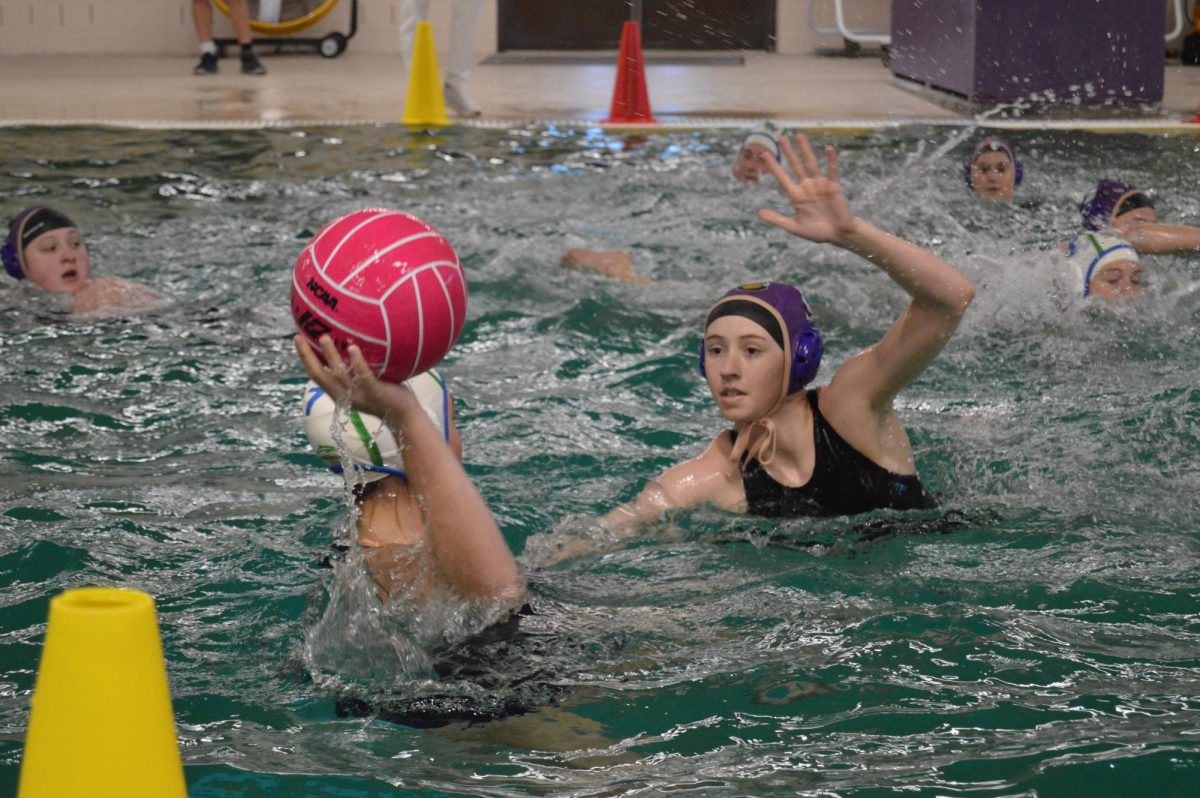The Athletic Code contains a variety of rules and regulations, one important section of which is the policy regarding drug use and drug paraphernalia.
According to the Athletic Handbook, a student in violation of this policy for the first time will face suspension for a period of time that cannot be less than the remainder of the season or up to 60 days, if the violation is during a sports season. If the student is out of season or is in violation for a second or third time then he/she is subject to different penalties, which can all be found in the Athletic Handbook.
Students are required to read and agree to the Athletic Code if they are to participate in sports. Boys basketball coach Scott Campbell says he goes over the code with his teams during his season.
“In order to participate in any athletic program here at Puyallup you have to be cleared. And part of that clearance process is filling out a waiver form saying that you have read and understand the Athletic Code,” Campbell said. “If you have students participating, there [are] not many things that [they] can do that would cause them to be unable to participate in the remainder of the season, except for drugs and alcohol abuse. So that is communicated very clearly by all the coaches, because they want all the athletes to be able to participate.”
Junior Reno Messineo has participated in football, swimming and track. Messineo is currently in swimming.
“I think it is good that we have a policy about drugs [and] that none of the teams do them. [They are] bad for you and could affect you in the long run. We have a meeting at the beginning of the year talking about if we get caught with them we will be kicked off of the team,” Messineo said.
Campbell explains that the drug policy is meant to deter students from using drugs and alcohol.
“It has always been illegal; it is illegal in society for underage kids to use drugs or alcohol and tobacco. There have always been strong consequences that are meant to help encourage and promote the idea of not using drugs and alcohol for the kids who are wanting to play athletics,” Campbell said. “It is meant to be used as a deterrent, not as a hammer, in the hope that students would not choose to do those things if they wanted to be able to participate in athletics.”
Principal Eric Fredericks describes the process of investigating allegations of drug use.
“Typically what happens is information is brought to our attention that perhaps somebody attended a party. It is not bad to attend a party but of course if there are alcohol and drugs or things of that nature that are illicit then it becomes a problem,” Fredericks said. “Usually it is brought to our attention, we investigate it and in the course of our investigation we are trying to corroborate the allegations that have made been made against the athlete or athletes. If in fact we are able to prove that they did participate in drugs and alcohol or attended a party where those things were present. Then we go to the next step which is to levy sanctions.”
Commitment to the school policy and the sports team are important aspects of participating on a team, according to Campbell.
“I do not think there is any room for a person who is striving to be their best in athletics and in life to be using drugs or alcohol. What I ask of our players is, ‘do not be a fake.’ If you want to do is be a basketball player or an athlete then commit to that. Commit to your teammates and follow the code that everyone is committed to,” Campbell said. “If you do not want to do that, do not try and fake everybody out and deceive people. Do not commit to being an athlete and being on a team. It is still illegal but now at least if that is what you want to do you are not dragging the rest of your team and your coaches through the poor decisions that you are making.”
Fredericks explains why he thinks that violations of the drug policy are relatively rare at PHS.
“People can argue the degree to which drugs and alcohol exist or do not exist here and the degree to which people participate, especially athletes or do not participate in it. But I truly believe in my heart of hearts, for a variety of reasons, that people do their best to exercise their best judgment [that] they can in most circumstances. As a result we have few incidents of this occurring on any given year,” Fredericks said. “I think we are pretty fortunate because I am aware of other schools, having colleagues that work in these other schools [and] of the numbers of violations they face. It think we do a decent job of holding a high standard of educating students here and more importantly of supporting them to maintain the excellence that we strive to achieve in our athletic programs and extracurricular programs here.”


